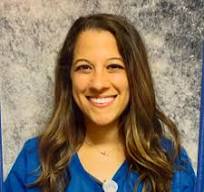Vascular Aging Laboratory
Director: Joaquin U. Gonzales, Ph.D.
Location: Kinesiology & Sport Management Building, room 119
Laboratory Focus
Nearly half of U.S. adults have some form of cardiovascular disease. Many modifiable lifestyle factors have a strong impact on cardiovascular health. Our laboratory focuses on the multidirectional relation between sleep, physical activity, and vascular function in order to determine optimal behaviors to lower the risk for developing cardiovascular disease and promote healthy aging.
Funding
The Vascular Aging Laboratory at Texas Tech University has been active in human research since 2011. During this time, the laboratory has been funded by various funding sources.
Source: Office of Research and Innovation, Scholarship Catalyst Award, Texas Tech
University
Title: Effect of stable sleep patterns on peripheral vascular function following sleep
deprivation
Role: Principal Investigator
Dates: 2024
Amount: $7,000
Source: American Heart Association, Innovative Project Award
Title: Effect of Pulsatile Pressure & Long Sleep Duration on Cerebral Vascular Function
Role: Principal Investigator
Dates: 2019-2021
Amount: $197,451
Source: American Heart Association, Southwest Affiliate, Beginning Grant-in-Aid
Title: Impact of Reduced Arterial Stiffness on Peripheral Vascular Function
Role: Principal Investigator
Dates: 2015-2017
Amount: $136,076
Source: Laura W. Bush Institute for Women’s Health, Seed Grant
Title: Age and the Effect of Preclinical Cognitive Decline on Mobility
Role: Co-Principal Investigator (50%)
Dates: 2015-2016
Amount: $10,300
Student Research
Students that are actively conducting reserach or have successfully completed a graduate thesis project in this laboratory include:
- Gabriel Narvaez, 2024-Present. Current student in the Ph.D. program in Exercise Physiology;

- Jacob Dellinger, 2021-2023, title of thesis “Impact of sleep regularity on skeletal muscle oxygenation changes during cycling exercise”;
 Graduated in 2023.
Graduated in 2023.
- Cayla Clark, 2019-2021, title of thesis "Effect of fractionized exercise on nighttime central blood pressure, cognitive function, and cerebral tissue oxygenation under conditions of normal and long sleep durations";
 Graduated in 2021. Currently a PhD student at Texas Women's University.
Graduated in 2021. Currently a PhD student at Texas Women's University.
- John Ashley, 2016-2017, title of thesis "Effects of L-citrulline supplementation on the energetic cost of walking";
 Graduated in 2017. Currently a Post-Doctoral Fellow at the Institute for Exercise
and Environmental Medicine at Texas Health Presbyterian Dallas.
Graduated in 2017. Currently a Post-Doctoral Fellow at the Institute for Exercise
and Environmental Medicine at Texas Health Presbyterian Dallas.
- Andrea Raymond, 2015-2017, title of thesis "Effect of L-citrulline on gait performance in older adults";
 Graduated in 2017. Works as a registered nurse at Texas Health Resources in the Dallas-FortWorth
metroplex.
Graduated in 2017. Works as a registered nurse at Texas Health Resources in the Dallas-FortWorth
metroplex.
- Melissa Inigo-Vollmer, 2010-2012, title of thesis "Influence of menstrual cycle phases on exercise-induced bronchospasm and its effect on endurance performance".
 Graduated in 2012. Currently a Research Scientist at UT Southwestern Medical Center.
Graduated in 2012. Currently a Research Scientist at UT Southwestern Medical Center.
Recent Research Findings

Can you keep a regular sleep schedule? If so, then your heart may thank you for it! Our latest research asked young-to-middle aged adults to keep a consistent sleep schedule for 12 nights. Measures of cardiac autonomic function, that is, parasympathetic and sympathetic control of the heart was assessed at rest using electrocardiography (EKG). Compared to measurements taken after their normal sleep pattern, we observed parasympathetic control of the heart to increase after the consistent sleep schedule even though average total sleep time was similar between their normal pattern and consistent sleep schedule. This finding was accompanied by lower resting heart rate and increased time for the heart to perfuse with oxygen rich blood. This intriguing data indicates that keeping a regular (consistent) sleep schedule can improve the brain's regulation of the heart promoting optimal cardiovascular health. You can read more about this research study in the scientific journal Sleep Medicine at https://doi.org/10.1016/j.sleep.2025.106643 .
Interested in Being a Research Participant?
We are currently conducting a study investigating the effect of sleep fragmentation on exercise blood flow. Please click on Flyer for more information.
Interested in Getting Involved?
Students interested in getting involved with research in this laboratory should contact Joaquin U. Gonzales, Ph.D.
Department of Kinesiology & Sport Management
-
Address
Box 43011, Texas Tech University, 2500 Broadway, Lubbock, TX 79409 -
Phone
806.742.3371

